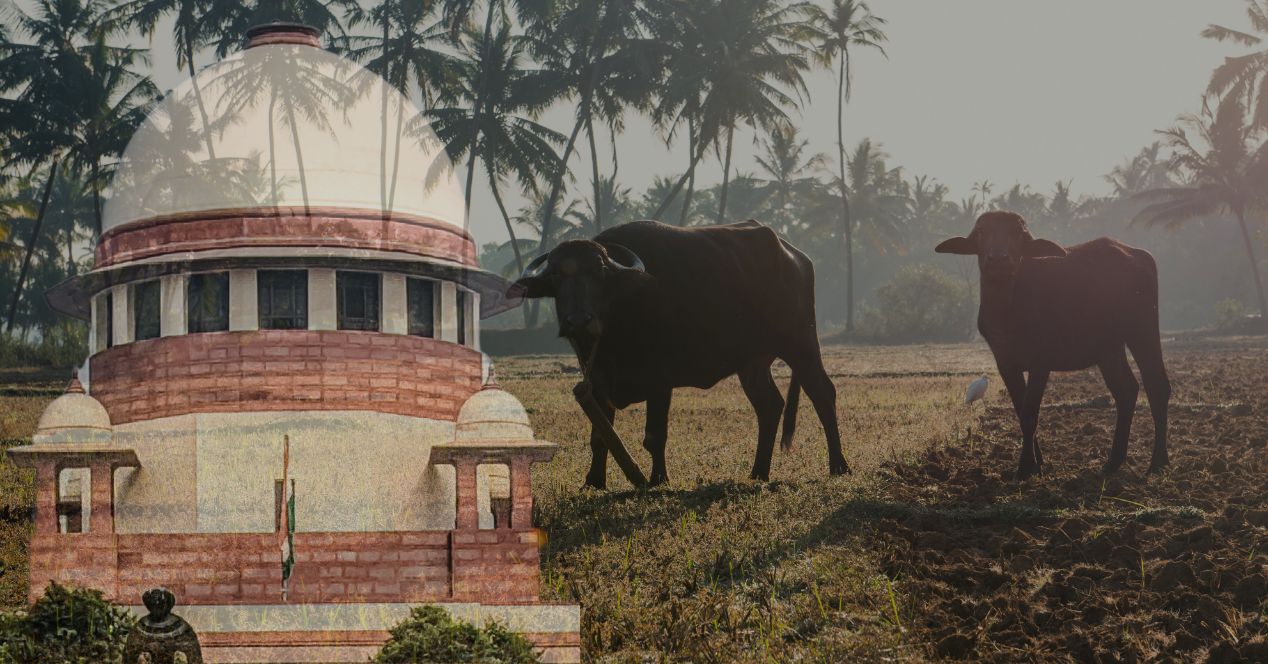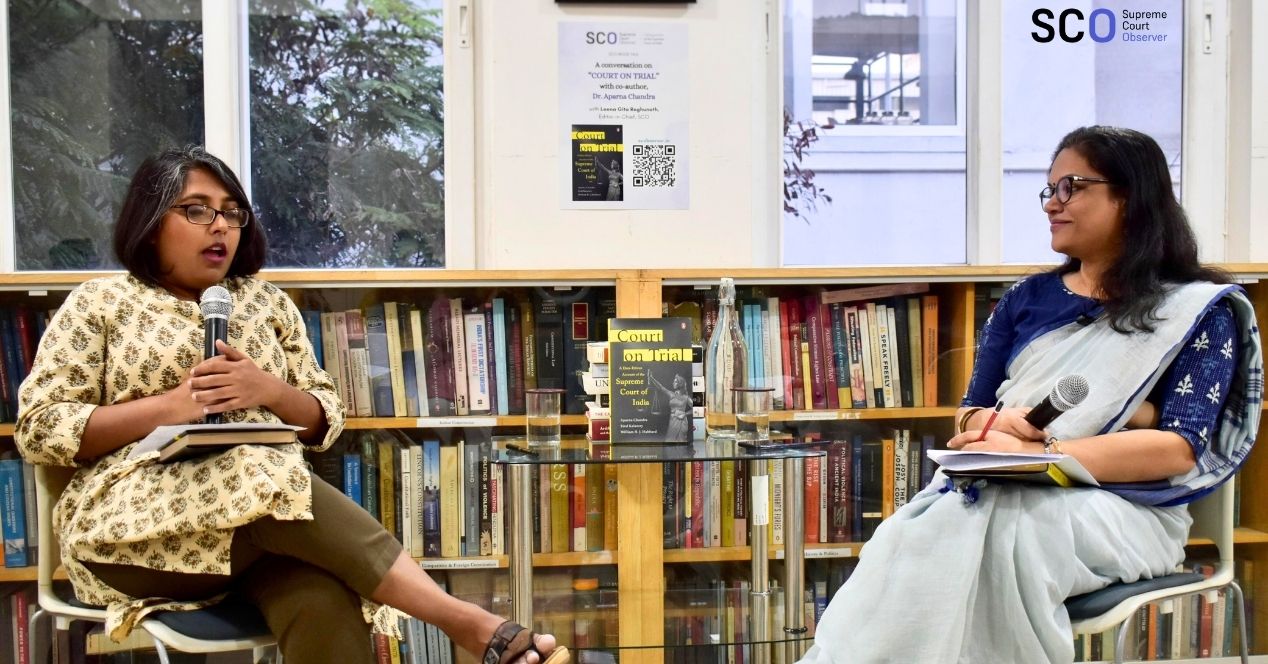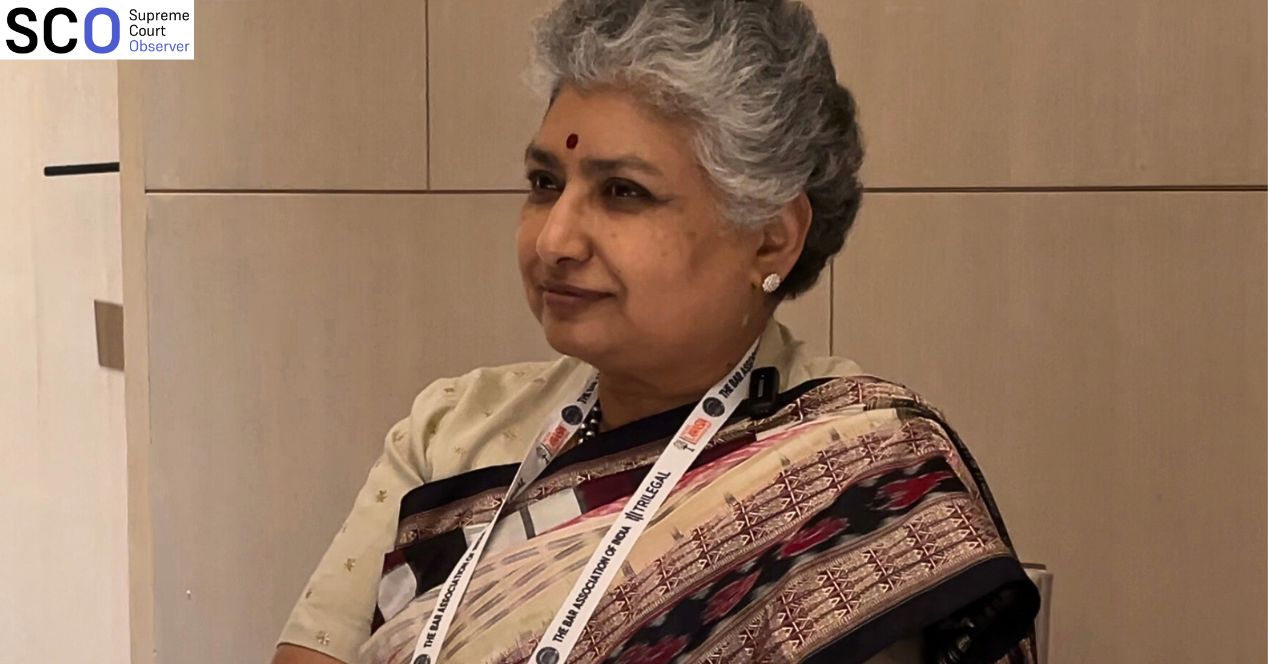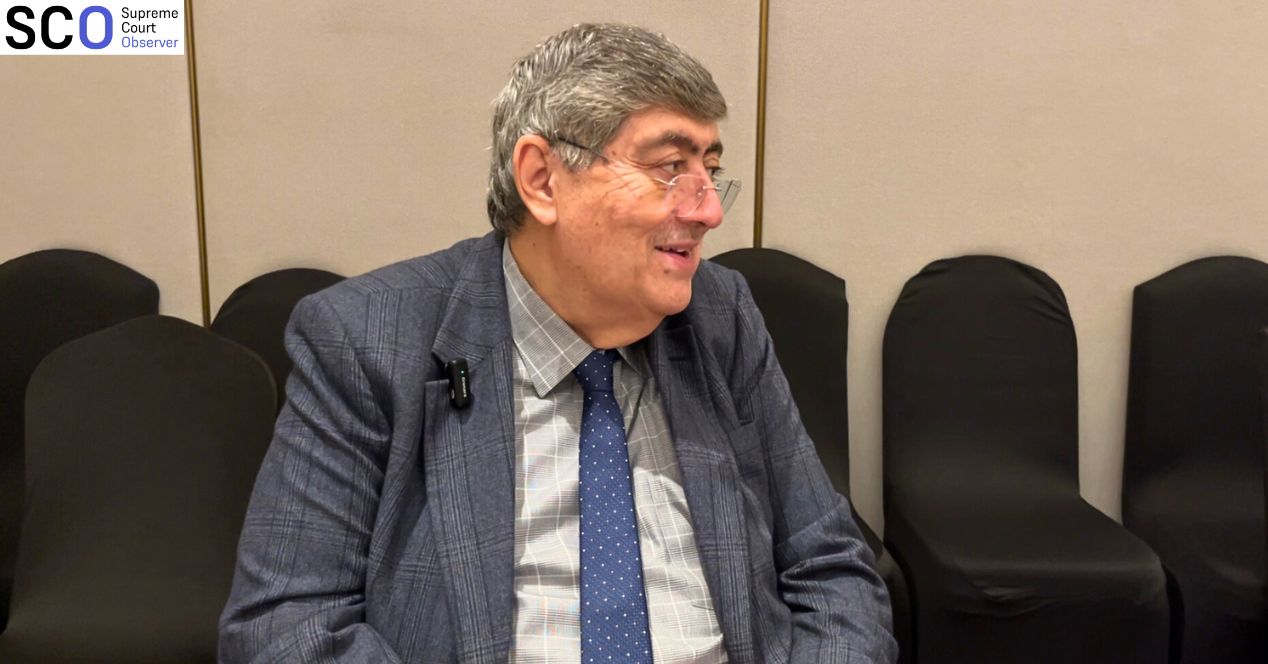Analysis
“Judiciary of Sri Lanka has maintained independence, personalities haven’t mattered”: Justice Arjuna Obeyesekere
SCO spoke to the Sri Lankan Supreme Court judge about arbitration, judicial independence, and law’s influence on society
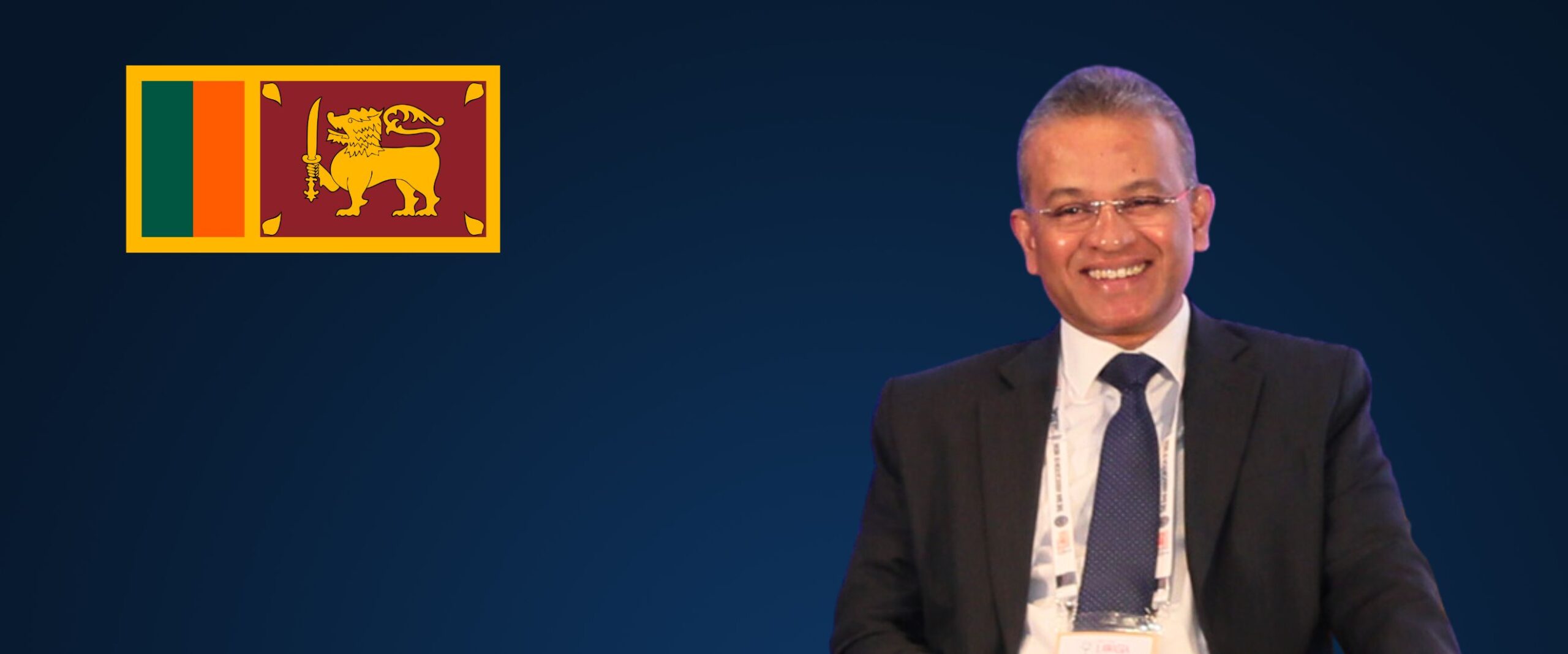
Justice Arjuna Obeyesekere is a judge in the Supreme Court of Sri Lanka. He joined the Attorney General’s Department as a State Counsel in 1993, and then went on to become Senior Deputy Solicitor General. He was appointed to the Court of Appeal in 2018 and went on to become its president in 2020. He was appointed to the Supreme Court in June 2021. Justice Obeyesekere has deep expertise in commercial litigation, having worked on several banking and arbitration matters as counsel.
As a judge, he made global news in December 2018 when he held that then prime minister Mahinda Rajapaksa and his cabinet could not hold office after falling short in a no-confidence motion in the country’s legislature. More recently, he was part of a Supreme Court bench that refused to block an amendment that proposes to decriminalise same-sex relationships in Sri Lanka.
On the sidelines of the LAWASIA Conference here in Bengaluru, where Justice Obeyesekere participated in a session on judicial conduct in the digital age, Supreme Court Observer caught up with him for an interview. The transcript has been lightly edited for clarity.
You have significant experience in commercial law, particularly in arbitration. What do you think are the particular opportunities and challenges around arbitration in India? In our sessions in the last few days, we’ve talked about its relevance in lightening the judicial docket.
I had the opportunity to follow the seminar that discussed the digitisation of the judicial resolution process including arbitration. Having listened to some of the speakers, I felt that in the last three years, probably as a result of COVID, there has been a substantial increase in the number of online hearings in arbitration. And the digital era seems to have made its inroads into arbitration in India significantly. There’s a very huge potential for developing arbitration in India. And if you look at the Sri Lankan perspective, we also have two centres in Sri Lanka and we’re seeking to develop Sri Lanka as a centre for arbitration in the years to come. Also, there’s also a lot of focus right now on mediation in developing Colombo as a hub for mediation.
We’ve seen that though arbitration is a useful alternative method of dispute resolution, the expenses are fairly high. That negates the original internet with which arbitration was devised. Have you seen this to be true in your experience as well?
Yes, One of the criticisms against arbitration in Colombo is that the costs are too high. But you have to always remember that when they said arbitration is cheaper, it was relative, or they were trying to strike a comparison with costly litigation. So I still believe that in terms of matters that require a lot of attention by the court, arbitration can still be comparatively cheaper than litigation.
You’re known for the judgement that recently batted for the decriminalisation of same-sex relationships in Sri Lanka. Did you face criticism or backlash for the judgement?
So that was a judgment which was heard by a panel of three judges. It was chaired by His Lordship the Chief Justice. There was Justice Malalgoda, a very senior judge of the Supreme Court, and myself. So I was the most junior member of that particular bench.
And I must say when we were looking at that particular Bill to repeal two provisions that sought to make sodomy a criminal offence, we looked at Indian jurisprudence on the matter. There was a judgment in 2018, and we particularly looked at the judgment of the present Chief Justice of India.
And if you’re asking me about backlash, I can tell you none at all. We’ve looked at when sodomy became an offence from a historical aspect. And we’ve also looked at it from a position of the basic human dignity of a human being.
For that, we’ve drawn support from the South African experience with regard to a similar Bill. So no backlash.
That’s wonderful to hear. But law and society often bounce off of each other and have a deep interplay. There’s still some back and forth in India on the topic, even after, as you said, the Indian Supreme Court decriminalised sodomy in 2018. Now, it’s about how that right then expands to other rights. We have recently had a right to marriage equality judgment in India, and a question on how a right to a life of dignity and a right to relationships may or may not extend to a right to marriage, or an equal right to marriage. What are your thoughts on that?
Yes, I think the Indian Supreme Court came out recently with a determination. I believe it was a strict decision. We haven’t seen that debate taking place in Colombo, so I do not think I can comment from that perspective. Plus, there’s always a possibility that such a Bill might be challenged.
So I don’t think it’s appropriate for me to comment. But what I can tell you is that the debate in society has still not taken ground.
So perhaps then a more pointed question would be, where does law changing society and society changing law come from?
I think it’s a very interesting interplay between the two. And from the way I look at it, it’s difficult to say at which point law takes over society and vice-versa. But I think it’s a very interesting interplay that we see at the moment.
Let’s talk about the independence of the judiciary. It’s central to any conversation around access to justice. But how does an institution like that, which is working so closely with the other pillars of the Constitution, maintain its independence?
If you look at Sri Lanka, we have the separation of powers which is put in place in certain aspects. And the judiciary is isolated. We do not have much contact with the legislature or the executive and there are certain provisions of the Constitution which robustly defend the independence of the judiciary. The appointment process is transparent. Once appointed, the tenure of office is guaranteed, the age of retirement is guaranteed, salaries cannot be touched. So there are very robust provisions with regard to independence. And the judiciary of Sri Lanka, I can tell you, has maintained its independence right along. The personalities have not mattered.
As part of maintaining that independence, many believe that judges should not get involved in the mainstream media or they should not openly engage in public dialogue. What are your views on that?
Yes, we are now trying to keep it transparent where the registry of the Supreme Court will interact with the public. So we are developing a website where people can contact the administrative staff. But there is a big divide between the judges and the public: the public cannot have access to judges and judges do not express their views in a public forum. Speaking for myself, I’m not on any social media. Facebook, Twitter, X, or whatever. And from a personal point of view, I think it’s healthy to keep it that way.
Of course, you will recall that on Saturday we spoke about the Bangalore Principles in the digital age. We are conscious that we have to move with the times. But we are also conscious that we maintain the safeguards and that we maintain the privacy that we have so generously guarded.
It’s a very delicate balance: move along with the times and have more of a direct interplay with people but to also maintain privacy. And it’s often very hard to pinpoint what degree of disclosure is acceptable to both maintaining the institution’s independence and the institution’s autonomy, but also being relatable to the public. Could you comment on what that degree is?
I must tell you, we take a fairly conservative view. And the relationship with the outside world is kept to a minimum. And they say that becoming a judge is like entering a temple. So, we say the temple of justice. We jealously guard our privacy at the moment. And it’s up to us to ensure that we keep that, and as you said, strike the correct balance. But it’s always good to err on the side of caution.
Over the last few days of sessions, we’ve learned many interesting things about multiple jurisdictions. And particularly here, because we’re speaking about the Indian and Sri Lankan jurisdictions, what are some of the key learnings that both can have from one another?
I think India has a very, very strong legal establishment at the moment. Having spoken to some of the other speakers and the attendees, I think we have to look at it also from the perspective that in terms of digital technology, India is streets ahead of probably the majority of countries in the world. That digital competence has now come into the legal mainstream and we’ve seen digitisation is assisting the development of the legal system. So that’s something that I wish to take back. There are endeavours to digitise the judiciary in Sri Lanka as well. It’s at a very early stage. And what I’ve learned over the last few days certainly will be of advantage.

